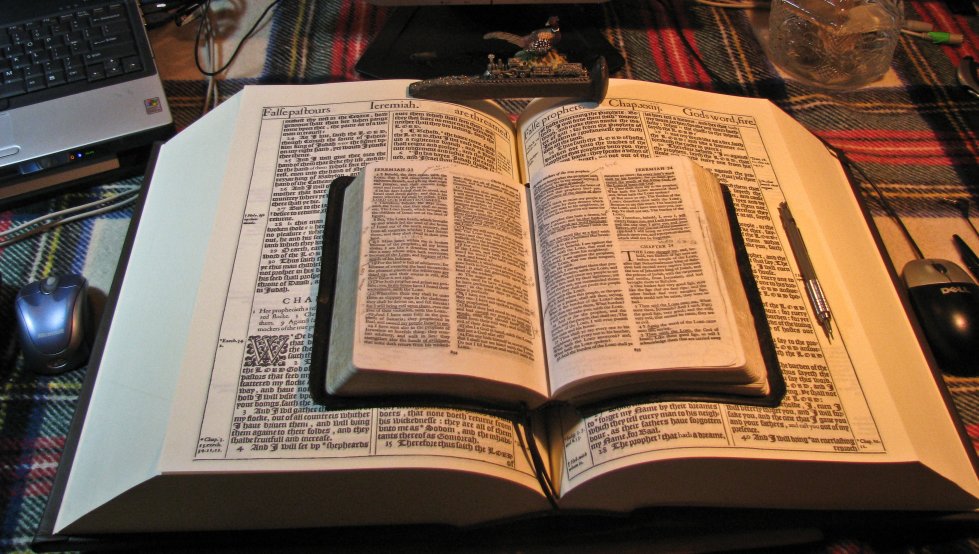 |
 |
|
VII. Going Beyond Absolute Music The Design of Japheth's Purest Music |
The sound of late Baroque and early Classical is so clean, most folks are bored with it and can't even listen to it, let alone appreciate it and be edified by it. That is how corrupted we have become over the 'beat' and 'design' of modern music today.
Last evening's live concert performance at
Cordiner Hall
an exuberance of clear and
clean "sound"
No technical critique emphasis
for me
invigorating
live - quiet still time
Good way to teach good listening
skills to your little children
self-discipline
thinking
of others
even
a few social manners
Listening audio examples:
Beethoven to Wagner
A time of great revolutions in the world.
Industrial revolution replaced people with machines and the people fought back with their feelings and emotions!
Passion, not reason, ruled the day!
Artistic freedom moved in - emotions ruled the arts (literature, architecture & art)!
Tone color (types of sound) became important as the instruments were improved!
About the mind - harmony - emotions
Folks enjoy this period more than the classical, even though they think
this is the classical era. This is as far back as they can stand!
Harmonies became more expressive, more dissonant (just 'more') and
more chromatic.
Previous forms were expanded.
Leavening process begins downhill from Absolute Music era!
Moving music away from God's glory and praise to man's own!
Ham is moving closer and closer at this time with Jazz!
In music, Romanticism led to looser and more extended musical forms:
End of Classical
The classical style may be seen to culminate in the music of Beethoven,
who is perceived as the link between the classic and romantic style. This
distinction is important for the so-called common practice era from ca.
1725 to 1900, that is the period of the defining tradition of western music.
Beethoven - end and new beginning
Wagner
Virtuoso
Another manifestation of Romanticism is found in the exaltation not
only of the composer but of the virtuoso performer; pianists such
as Chopin and Liszt, and the violinist Paganini, acquired European reputations
for their unique insights or heroic brilliance. A further aspect of Romanticism
is found in the search for national identity, often through their history
and folk-music repertory, by many of the European countries just attaining
political maturity or independence.
Audio Example of Virtuoso Pianist
excerpts from Hungarian Rhapsody # 2 - Franz Lizst
Our mind - we have one and still have to use it - even if we know we have the mind of Christ in that King James Bible. Certainly not in our own mind, yet, as the bapticostals, etc. are claiming more and more these days.
we read the KJB
we read other stuff, too.
we have thoughts
we have imaginations
we hear other things
Parents, get real:
so do our children!
so do our grandchildren!
You might as well keep it clean - cooth, versus uncooth - and certainly not crass!
Praise God with clean thoughts, clean sounds, clean words, clean
imaginations
Philippians 4:8
Finally, brethren, whatsoever things are true, whatsoever things are honest,
whatsoever things are just, whatsoever things are pure, whatsoever things
are lovely, whatsoever things are of good report; if there be any virtue,
and if there be any praise, think on these things.
II Corinthians 10:5 Casting down imaginations, and every high thing that exalteth itself against the knowledge of God, and bringing into captivity every thought to the obedience of Christ;
The Lost world has a defiled, perverted and seared conscience - mind!
Romans 1:21 Because
that, when they knew God, they glorified him not as God, neither were thankful;
but became vain in their imaginations, and their foolish heart was darkened.
Ephesians 4:17-19 This
I say therefore, and testify in the Lord, that ye henceforth walk not as
other Gentiles walk, in the vanity of their mind, Having the understanding
darkened, being alienated from the life of God through the ignorance that
is in them, because of the blindness of their heart: Who being past
feeling have given themselves over unto lasciviousness, to work all uncleanness
with greediness.
Romans 3:23 For
all have sinned, and come short of the glory of God;
it can be grieved - Genesis
23:8
it can desire - De
18:6
it can sorrow - De
28:65
it can be willing -
I Ch 28:9
it can be willing to work - Nehemiah
4:6
it can be uttered - Pr
29:11
it can be hardened in pride - Da
5:20
and it can be changed - Hab
1:11
The Bible speaks of:
despiteful minds - Eze
36:5
right mind - Mark
5:15
evil affected mind - Acts
14:2
reprobate mind - Romans
1:28
carnal mind - Romans
8:7
vain mind - Ephesians
4:17
fleshly mind - Colossians
2:18
corrupt mind - I
Timothy 6:5
being high-minded - II
Timothy 3:4
a defiled mind - Titus
1:15
being sober minded -
Titus 2:6
blinded minds - II
Corinthians 3:14; 4:4
minding earthly things - Philippians
3:19
... Yet now for a Christian:
it can be a transformed and renewed mind - Romans
12:2; Ephesians 4:23
we can now love God with it - II
Timothy 1:7
it can be stayed on God for a perfect peace -
Isaiah
26:3; Philippians 4:8
it can be fully pursuaded as to whether what
we do is right or wrong - Romans 14:5
not to get caught up in the complex - the simplicity
that is in Christ - Philippians 4:7
We ought to give our mind clean
and godly music
that is based on clean and Godly
structure!
And Praise Him with Absolute Music!
And Remember - His 'Pure' Music
is the King James Bible!!